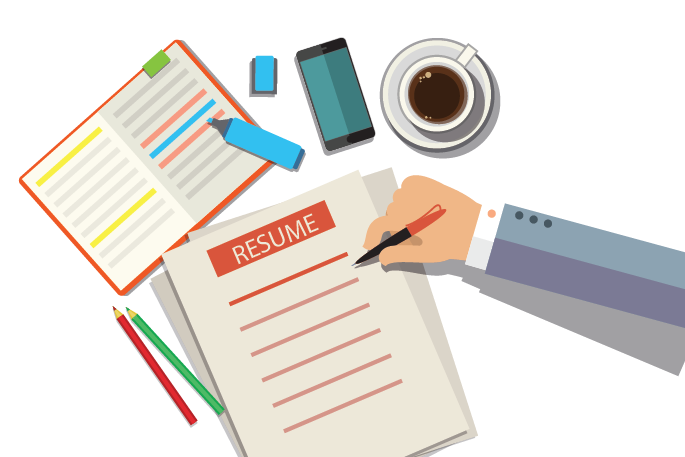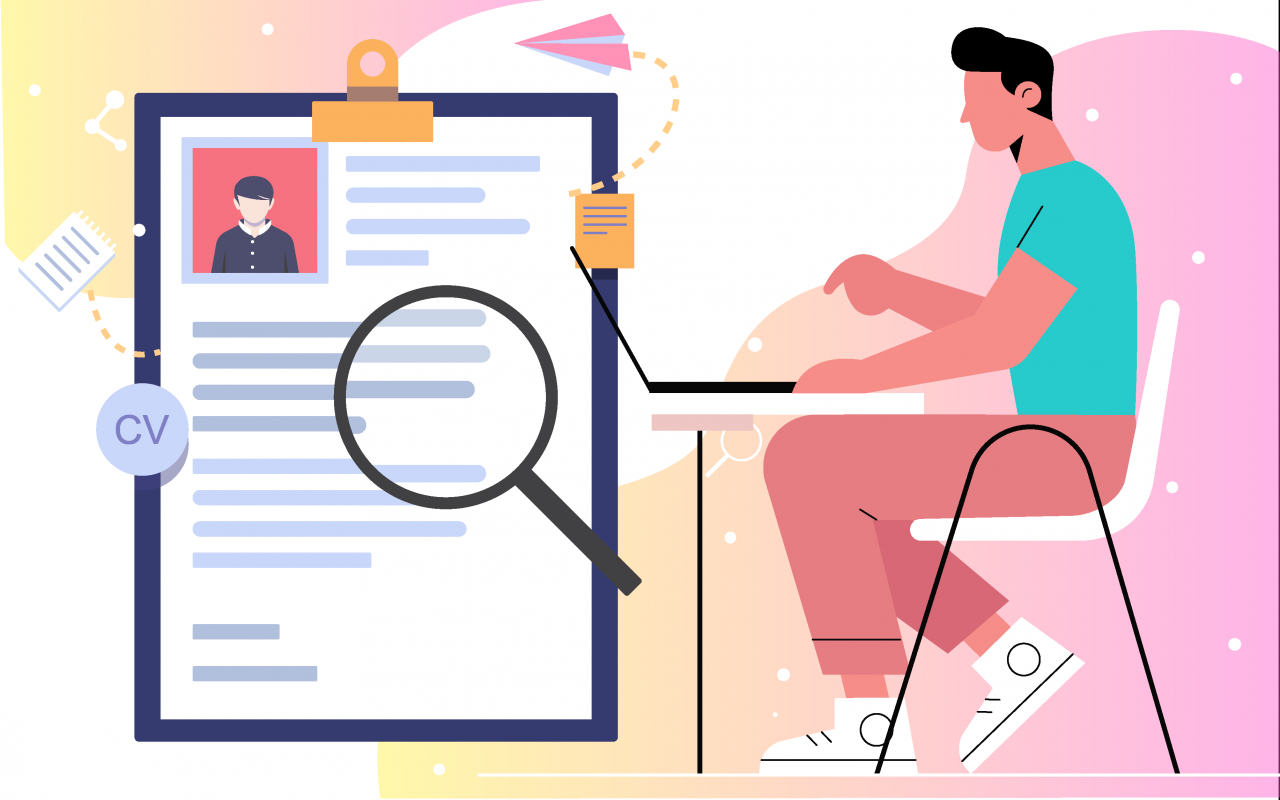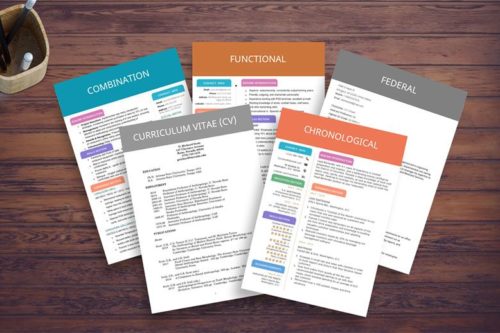In addition to the cover letter, the CV must not be missing from an application. We want to show what the perfect résumé looks like for us. Of course, there is some leeway, but certain information should always be taken up.
The tabular curriculum vitae includes your personal data as well as your professional experience and your school career. In addition, IT skills, as well as personal interests and hobbies, are often included. In the opinion of some HR managers, a photo should not be missing either, but it is no longer a must. We will go into each of these sections in detail.

Personal data
In every perfect résumé, personal data is mentioned, such as first and last name, date and place of birth, address, telephone number, and e-mail address. You can be reached by the HR manager by post, phone, and email.
Unfortunately, there is not much leeway here. The only question to ask yourself is where to put this information. They are correctly stored in the header of a document or, for example, in a column highlighted in color on the left. Often you introduce the résumé with this data and place the photo next to it.
There are many free templates and samples available on the Internet that you can use to create your own resume. Often you can download these Word documents and fill them with your own data. There are many options for color design and fonts that you can adapt to your own preferences. It is only important that the résumé is clearly structured.
Professional career – the most important thing in a perfect résumé
Either structure your resume so that you start with the first station and end with the last, current position. Or you name the last or current position at the top and then all other stations in the corresponding order until you end with the first. We personally prefer this variant because you can see your last activity without much searching. And often it is this professional experience that is most relevant to filling a position.
The perfect résumé names each professional station that you have gone through. This includes the company name, your position, and the activities that made up your position. Based on this information, your potential future employer can determine whether you also fit the position for which you have applied.

Internships
Internships can be listed separately or presented as part of a professional career. If the content of the internship fits your professional career, it can appear as the first station in the section “Professional career”. If the internships do not have anything to do with your other work experience, you can leave them out.
If, for example, you are looking for your first job after your studies and have only gained work experience through internships, this point is very important. If you have years of professional experience in a field, there is no added value in listing internships as you will be hired based on the in-depth knowledge you have acquired afterward.
Education
The school career or the section “Education” should also find a place in the perfect CV. The highest educational qualification should be mentioned first, for example, the completion of the degree (as well as the university/technical college and focus or specializations) or the vocational training with training titles such as training location, areas, and specializations.
This is followed by the secondary school that you attended, i.e. grammar school, comprehensive school, secondary school, or secondary school. The primary school does not have to be named unless the application is aimed at an apprenticeship position. Furthermore, if applicable, community service, military service, semester abroad, or the voluntary social year can be listed.
IT skills
Computer skills also belong in the perfect résumé. Almost everywhere today it is expected that you can work with a PC. Almost everyone knows MS Office. Nevertheless, the program belongs in the résumé like other, possibly job-specific software. When filling out this section, consider which IT skills you absolutely need in your own job and which the future employer will require for your application.
Interests and hobbies
One would think that the HR manager is only interested in a professional career. But that is by no means the case. Your personal interests and hobbies say a lot about you as a person and how you can balance your job in your private life.

Stand out with the perfect résumé?
It is not that easy to stand out with a resume. Often the one application is the same as another. Usually, you are more likely to attract attention with the cover letter. Not much can be changed in the structure and content of the résumé. It’s about meeting the professional requirements for the position. You should therefore highlight the relevant activities of each station.
Otherwise, you have the option of designing the resume in an appealing color by visually separating the sections and emphasizing essential points. Here, too, it makes sense to take a look at the free templates and patterns available on the Internet.
The perfect résumé in the digital age
It is more and more common to send your application documents in electronic form (by email or in standardized online portals on the company’s websites). Particularly important: Ideally, a résumé is so well-structured and clearly laid out that the HR manager can capture all the relevant information as quickly as possible. Do not try to convince with quantity, but with an accuracy of fit. Only put the information on the resume that is relevant to the position you are aiming for. A recruiter decides in a few seconds whether he will deal with your profile. So not only your qualifications are important, but also the ability to make them visible. Minimal knowledge of search functions on the Internet can be an advantage. Because who knows whether a search engine will make the preselection in the future.




